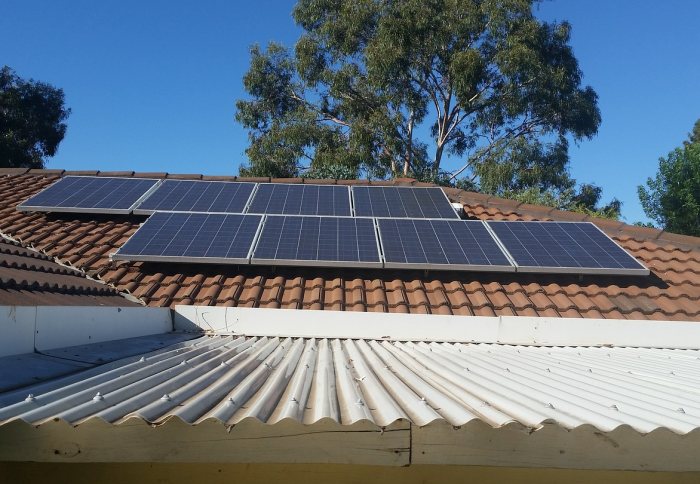
Image: colmkay
With electricity price rises in Victoria just a few weeks away, an energy efficiency upgrade initiative for low-income households in the Latrobe Valley will provide some very welcome and much-needed relief on energy costs.
650 households in the Latrobe City, Wellington and Baw Baw local government areas have so far registered interest the program that provides free energy efficiency upgrades, including solar power systems.
“We’re doing what we can to drive down electricity bills – by helping experts work across the Latrobe Valley to assist households improve their energy efficiency and save money,” said Minister for Energy, Environment and Climate Change Lily D’Ambrosio.
The Victorian State Government’s Latrobe Valley Home Energy Upgrade Program will deliver free solar installations and other energy-efficiency upgrades to up to 1,000 households during 2018 and 2019, up to a value of $4,500 per household.
According to SolarQuotes’ solar buyers guide, approximate prices for good quality 3kW solar panel systems in November ranged between $4,000 – $6,000. Depending on installation scenario, a 3kW solar package can generate the equivalent of approximately 2/3 of the electricity usage of a modest Australian home.
However, according to the program FAQ, it’s likely 2kW solar systems will be installed, along with other improvements.
Other than solar panels or solar hot water, energy efficiency upgrades may include replacing older, inefficient fixed appliances and/or improving the energy performance of a home; through work such as draught-proofing.
Households in the region with a current government concession or healthcare card may be eligible for the initiative, along with households already participating in a hardship program with their energy retailer. As well as owner-occupied premises, homes tenanted through private rental arrangements or community housing may also be eligible.
In addition to providing electricity bill relief, the program is expected to generate up to 10 additional full-time jobs, including two trade apprenticeships. Assessments and retrofits on behalf of Sustainability Victoria and the Latrobe Valley Authority will be carried out by a local company.
Further details on the program can be viewed here and households can register interest here.
Victorians Bracing For Another Electricity Bill Blow
The majority of Victorians will be faced with electricity price increases of up to 14.9% from January 1, 2018. While more than 285,000 non-concession customers of Origin, AGL and EnergyAustralia customers on standing offers or expired market offers will be shielded from the price hikes with rebates, 90% of Victorian electricity customers will be negatively impacted.

 RSS - Posts
RSS - Posts



This sounds very similar to some council schemes introduced in the UK with great success. A 2kw system mightn’t seem much, but it can make a huge difference to the well-being of lower income people who are seriously struggling financially, especially if combined with education and assistance with other consumption reducing strategies. The local government should also be able to get economies of scale benefits on the purchase and installation costs, as well as reducing or eliminating other likely social costs eg. person X is forced by necessity to sell house, medical costs reduced because more money available for food and medical aids, less likely to go into ‘full-care’ aged facility prematurely etc. From the governments point of view there are potentially a lot of ‘avoided’ costs that far exceed the cost of the installation. eg.. already there’s a power bill problem in Australian for people whose medical condition requires them to use special equipment (which is also power-consuming) eg ventilators, circulation boosting devices etc
Some councils in the UK didn’t stick with the ‘simple’ plan unfortunately. Instead they got ‘greedy’ and got involved in such things as – also renting the roof space of any other ratepayer who managed to somehow make themselves eligible to sign up, installing 5 kw systems, on both council owned and privately owned properties ‘paying’ the social welfare user a ‘rent’ by letting them have X free kwhs per day/month etc equivalent (say) to a 2 kw system, and selling the excess production to the power companies at a high FIT., and (maybe) removing the panels and inverter at the end of the ‘rental’ period.
By the time factors such as – the property owner who is the account holder sells the house to some-one else or if a tenant, they move elsewhere, dies, or marriage bust-up, or one or both of the joint signee’s leaves for some reason,or the FIT changes for some reason or whatever other random event occurs, what you of course can potentially end-up with over time is an administrative and financial nightmare for the council.
And of course, the more ‘complicated’ the arrangements are, the more scope there is for highly profit-motivated major power company distributors to carefully introduce seemingly minor ‘rule changes’ over time.
Let’s hope the Victorian councils learn from the mistakes of their UK counterparts, resist the temptation to try and make a quick buck by becoming inept ‘sub-distributors’ and instead ‘keep it simple’.
Personally, I also put the idea of selling your surplus electricity to your nearby neighbour via a third party in a similar category – might look good on paper, but runs the risk of falling apart if you and your neighbour have a fall-out, gets ‘complicated’ if his needs change, or unexpected technological improvements come along which change the whole ball-game